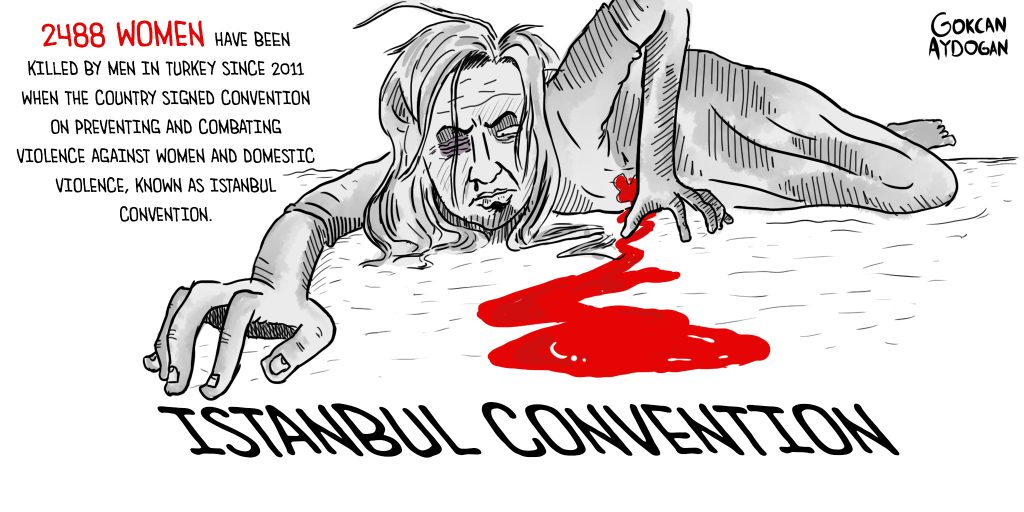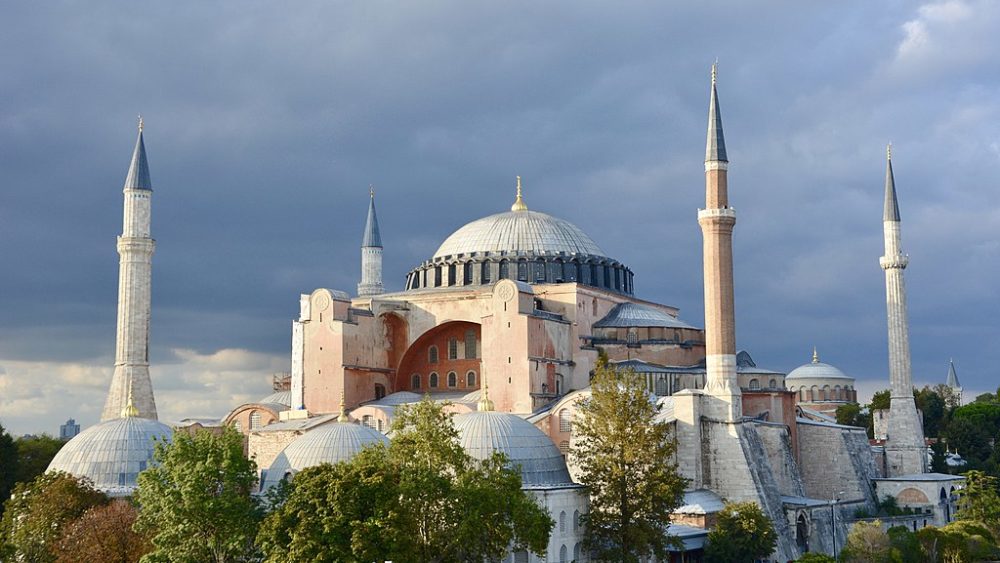The Provisional National Collective in Turkey is pleased to inform DiEM25 members with the first issue of a monthly review on Turkey’s social, economic, and cultural state of affairs.
After 86 years as a museum, Hagia Sophia has now been converted back into a mosque.
On July 24, several hundred people, including President Erdoğan, and according to official figures, several hundred thousand people prayed before Hagia Sophia.
Ali Erbaş, head of Diyanet, the state religious office, gave a first presentation of the religious ritual by holding a sword as a symbol of conquest during Friday sermon in Hagia Sophia. This act was protested in two ways: Religion should not be merged with violence and in particular it will definitely offend the non-Muslim population, as it recalls an Ottoman saying “sword residue”. It means, after a pogrom some get stuck on the lineage because a cruel man couldn’t kill enough.
Sultan Mehmet the Conqueror has converted Hagia Sophia to a mosque and established it as a legacy of his foundation. In 1936 Mustafa Kemal Atatürk had signed a decree and converted it into a museum. Without mentioning the name, the head of Diyanet has accused him of betrayal. The opposition as well as the majority of population strongly condemned him and asked for his resignation.
This transformation has been interpreted in local and international press and social media as follows: Turkish President’s power politics, the ongoing pressure of strong or mild religious units since a decade, preparations for an early election and an initiative step towards caliphate.
Curiously, the Society for Byzantine Studies AIEB has canceled its congress planned for 2021 in Istanbul; officially it was cancelled because of the coronavirus pandemic.
According to official Turkish information, around 1,000 people contract the virus every day.
The mask requirement in public in 48 provinces has recently been extended to August 30. Turkey is also on the list of countries for which a travel warning has been issued. During the 4 days Feast of Sacrifice the holiday resorts along the Aegean and Mediterranean coast of Turkey were extremely crowded by local population; it is widely observed that COVID-19 restrictions were not followed properly.
Turkey, meanwhile, quietly suspended its research and natural gas wells in the Eastern Mediterranean over the four-day holiday.
An escalation had occurred shortly before when ships of the navy of Greece and Turkey faced each other in the Aegean. After interventions in Iraq, Syria and Libya, also with the use of foreign mercenaries, the Turkish armed forces are now also participating in the maneuvers on the Armenian border — parallel to the Armenian-Russian war games in the Caucasus.
DiEM25 Turkey, Greece and Germany collaborated on the proclamation of DiEM25 on recent tensions in the Aegean Sea, inviting Greece and Turkey to peaceful and diplomatic solution of the current conflict.
Since 2011 over 2000 women have been killed in Turkey, and 36 women were killed only in July.

The Istanbul Convention (signed in 2011) is considered an effective justice instrument to prevent the murder of women, child abuse and the violation of LGTBQ rights. Ultra conservative and religious sects have been pressing for Turkey’s withdrawal from the Istanbul Convention, arguing that it destroys the unity of the family and paves the way for the recognition of LGBTQ groups.
The opposition has stood by the convention, as well as numerous NGO’s, including KADEM, an association of women rights founded by President Erdoğan’s daughter. The latest viral social media challenge — #ChallengeAccepted — invited women across the globe to post black and white photos of themselves and nominate other women to do the same.
Beral Madra
on behalf of DiEM25 PNC in Turkey
Do you want to be informed of DiEM25's actions? Sign up here















